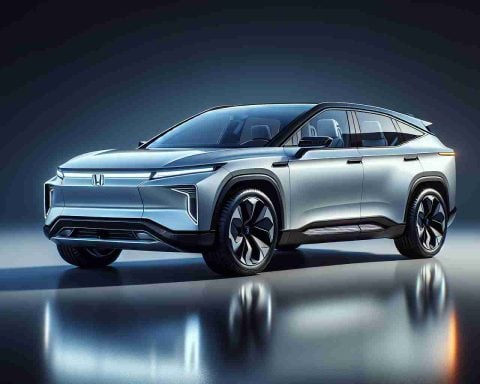Navigating the EV Market: Understanding the health of an electric vehicle (EV) battery is crucial when considering a second-hand purchase. Autotrader, a leader in automotive solutions, has introduced an innovative feature on their platform—a dedicated EV battery health score. This new tool aims to empower buyers, ensuring they make informed decisions and approach the market with confidence.
According to the Department of Energy’s National Renewable Energy Laboratory, contemporary EV batteries typically boast a lifespan of 12 to 15 years in moderate climates. They can effectively perform for distances ranging from 100,000 to 200,000 miles. The executive editor at Autotrader emphasized the advantages of used EVs, highlighting their cost-effectiveness, energy savings, appealing government incentives, and the latest technological advancements.
However, it is essential to note that, like the batteries found in smartphones and laptops, EV batteries experience degradation over time. Multiple factors influence their longevity, including usage patterns and environmental conditions.
Gaining Insights: By utilizing Autotrader’s EV battery health score, buyers can alleviate concerns regarding battery performance and make educated choices in the expanding electic vehicle landscape. With these innovative resources, the prospect of owning a used electric vehicle has never been more accessible or reassuring.
Beyond the Dashboard: The Broader Impact of EV Battery Health
The surge in electric vehicle (EV) adoption is not merely a trend; it signals a fundamental shift in our society’s approach to transportation and energy consumption. As platforms like Autotrader equip consumers with tools to assess EV battery health, we see a ripple effect that extends to the larger global economy. Empowered buyers are increasingly drawn to the used EV market, contributing to a push for sustainable practices and promoting a circular economy where prolonging battery life becomes paramount.
With approximately 1.4 million EVs projected to be sold in the U.S. alone by 2025, the implications for the environment are significant. Transitioning to electric vehicles can reduce greenhouse gas emissions substantially, with studies indicating that EVs can produce up to 70% less carbon dioxide over their lifetimes compared to conventional vehicles. However, the production and disposal of EV batteries pose environmental challenges, particularly concerning rare minerals like lithium and cobalt.
Future trends suggest a growing emphasis on battery recycling and repurposing, which could mitigate some of these ecological impacts. As companies innovate, we may witness advancements in battery technology that enhance durability and reduce degradation. In the long term, the move towards circular battery economies can not only support sustainability efforts but also foster economic growth by creating new market opportunities in battery management and recycling industries. This growing ecosystem will play a critical role in defining the electric vehicle landscape for years to come.
Unlocking the Secrets of Second-Hand Electric Vehicles: Why the EV Battery Health Score Matters
Understanding the Importance of EV Battery Health
As the popularity of electric vehicles (EVs) rises, potential buyers are increasingly seeking reliable information to guide their purchasing decisions. One crucial aspect of buying a second-hand EV is understanding the health of its battery. Autotrader has taken a significant step in assisting buyers with the introduction of an EV battery health score. This feature serves as a pivotal tool that empowers consumers by providing transparent information about battery performance.
Lifespan and Performance of EV Batteries
According to research from the Department of Energy’s National Renewable Energy Laboratory, modern EV batteries can last between 12 to 15 years, depending on climate conditions. They typically enable vehicles to travel distances ranging from 100,000 to 200,000 miles. Such longevity highlights the potential for a cost-effective and sustainable choice when purchasing used electric vehicles.
Pros and Cons of Buying Used Electric Vehicles
Pros:
– Cost-Effectiveness: Used EVs can be significantly cheaper than new models, making them accessible to a wider audience.
– Government Incentives: Buyers may still benefit from various incentives aimed at promoting electric vehicle adoption.
– Technological Advancements: Many used models come equipped with cutting-edge technology that enhances the driving experience while maintaining affordability.
Cons:
– Battery Degradation: Over time, EV batteries can show decreased capacity, directly affecting performance and range. Factors such as charging habits and climate play a significant role in this degradation.
– Limited Warranty Options: Depending on the age and mileage of the vehicle, warranties may be limited or expired, necessitating careful consideration during the buying process.
How to Use the EV Battery Health Score
Utilizing the EV battery health score provided by Autotrader allows potential buyers to gain deeper insights into the condition of a second-hand EV’s battery. Here’s how to take advantage of this feature:
1. Research: Look for cars listed with an EV battery health score on Autotrader’s platform.
2. Compare: Evaluate different models’ scores to see which vehicles maintain better battery health.
3. Ask Questions: Use the score to guide your inquiries with sellers about the vehicle’s charging history and prior maintenance.
Trends in the EV Market
The demand for electric vehicles continues to grow, driven by factors such as rising fuel prices and increased awareness of sustainability. Innovations in battery technology are also on the rise, leading to extended battery life and quicker charging times. Consumers are likely to witness ongoing enhancements as manufacturers invest in research and development aimed at providing better and more efficient EVs.
Future Predictions
Experts predict that by 2030, electric vehicles could represent a significant portion of the overall automotive market as advancements in battery technology and enhancements in charging infrastructure make EVs even more attractive. As a result, the importance of tools like the EV battery health score will continue to grow, guiding consumers toward informed decisions.
Conclusion
With the emergence of features like the EV battery health score from Autotrader, purchasing a second-hand electric vehicle has become easier and more transparent than ever before. Understanding battery health is essential for making an informed decision in a rapidly evolving market. For more information on electric vehicle options and resources, visit Autotrader.


















